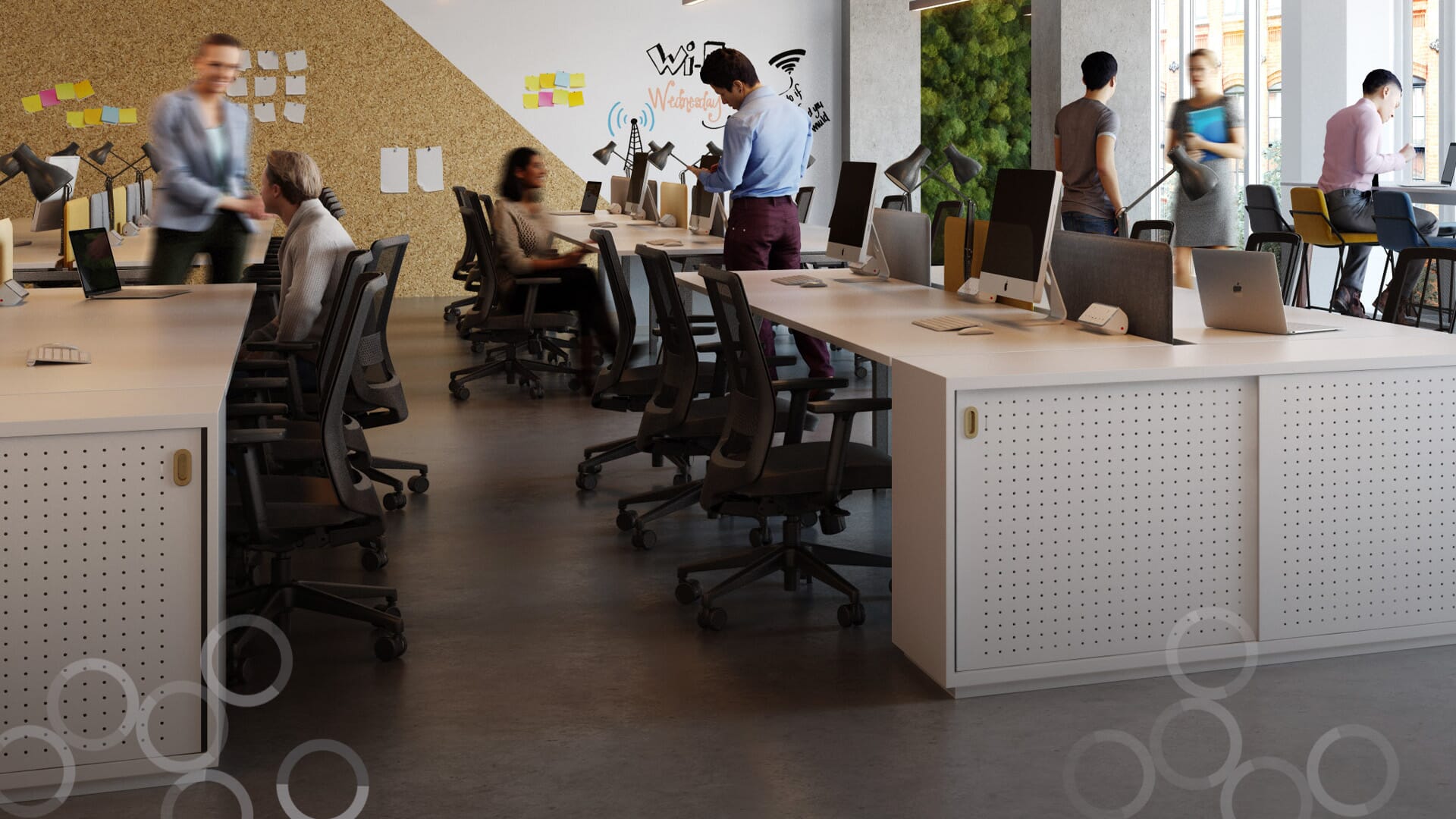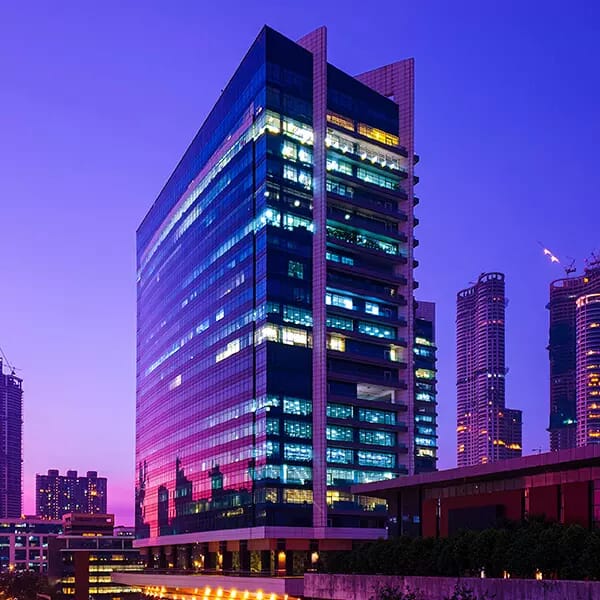 Landsec
LandsecLandsec’s Oliver Knight talks flexible offices and Myo
Oliver Knight, flexible office director at Landsec, explains what kind of customer Landsec is targeting with Myo launch.
February 27, 2019Real Estate
Flexible offices and workspaces are certainly in vogue. In Europe, according to a recent report from JLL, the sector is set to grow by up to 30% per year over the next five years, raising questions for the office sector as a whole. In the UK alone, there are estimated to be over 600 independent operators of flexible offices and workspaces. This fragmented market now includes, more recently, subsidiary brands launched by larger-scale, traditional office landlords who perceive gaps in the market. In June 2017, for example, British Land launched Storey, a flexible workspace brand aimed at companies employing between 20 and 70 people ‘who have outgrown co-working space and whose needs have evolved’. The latest traditional office landlord to establish a standalone, flexible office brand in the UK is Landsec, which launched Myo in January 2019.
Target market and branding
Myo’s first location is 123 Victoria Street in central London. It opens in April 2019 and Oliver Knight, Flexible Office Director at Landsec, reports that Myo is in the process of signing its first customer, who will soon select their office décor palette and consider optional extras to make the space their own.
Myo is targeting what it sees as an underserved segment of the office market, where individual corporate identity is important, as Knight explains: “Our target customers are businesses which are typically 15 - 80 people in size and are growing. A major pain-point for them is that they either have to take white box spaces in the traditional, serviced office market, or they have to take out longer-term leases, which they are not yet ready for. There’s not really a middle ground, and that’s what Myo is trying to address.”
Branding is one area where Myo is seeking to be different, continues Knight: “It’s a product focused around customers who want to put their own brand front and centre, as opposed to being part of a bigger brand. This customer audience finds that being part of a large ecosystem, with a dominant, central brand overarching it, means that they can’t really create their own brand, with a space aligned to their own business culture.”
At Myo, when it comes to personalising their space, prospective customers have a choice of three different palettes: natural, urban, or boutique. “Essentially, we’re trying to create three different types of look and feel, to resonate with different types of businesses,” says Knight. “The choice depends on what your business objective is and what you’re trying to get out of your office space, from a cultural perspective, but also from a workspace perspective.”
Price-point and contract flexibility
Price point is always a grey area, as Knight says: “At Myo, we are in the mid to upper price point, within the market. Desk rate is driven by density, and it depends on which density you choose to occupy your space at, but overall our guidance desk rate is around £850 inclusive per month at 123 Victoria Street.”
Rather than having month-by-month contracts, contracts are set at between one and three years. “With monthly contracts, customers could be out on a month’s notice and have to move to a new location with some other provider. That’s disruptive to their business,” explains Knight.
Some might wonder whether a contract lasting one year or longer offers true flexibility, to which Knight responds: “We’ll give people the flexibility they want, but everyone kept telling us that they don’t want month-to-month flexibility: they’d much rather have one year, two years or three years. We’ve aligned ourselves to that and the fact that customers couldn’t see their need for space at anything less than a year.”
Long-term partnering
Myo is not targeting any particular sector, as some other providers do. “Our customers could be anybody from a high-growth fintech firm to much more creative business,” says Knight. “We expect anything from top-end fashion, which is already in Victoria, through to those firms that are serving more corporate businesses. Myo is targeting high growth businesses - our new customers.”
Knight points out the statistic around the changing average life of a Fortune 500 company, now at 20 years, having once been 60 years: “It’s a stark difference. Customers of the future are going to be different from the customers that you might see today. They will include, we hope, a lot of our existing customers, but the world is changing faster and faster.”
As to Myo’s perspective on changing customers – and also the relationship between flexible offices and traditional offices – Knight says: “We’re creating a new product that allows us to facilitate businesses at the earliest stages of their development, and then move them into more traditional spaces as they continue to grow. It’s taking a real estate partner perspective, as opposed to a short-term perspective.”
The future of flexible offices will be discussed further at GRI Offices 2019 in November in London.
Target market and branding
Myo’s first location is 123 Victoria Street in central London. It opens in April 2019 and Oliver Knight, Flexible Office Director at Landsec, reports that Myo is in the process of signing its first customer, who will soon select their office décor palette and consider optional extras to make the space their own.
Myo is targeting what it sees as an underserved segment of the office market, where individual corporate identity is important, as Knight explains: “Our target customers are businesses which are typically 15 - 80 people in size and are growing. A major pain-point for them is that they either have to take white box spaces in the traditional, serviced office market, or they have to take out longer-term leases, which they are not yet ready for. There’s not really a middle ground, and that’s what Myo is trying to address.”
Branding is one area where Myo is seeking to be different, continues Knight: “It’s a product focused around customers who want to put their own brand front and centre, as opposed to being part of a bigger brand. This customer audience finds that being part of a large ecosystem, with a dominant, central brand overarching it, means that they can’t really create their own brand, with a space aligned to their own business culture.”
At Myo, when it comes to personalising their space, prospective customers have a choice of three different palettes: natural, urban, or boutique. “Essentially, we’re trying to create three different types of look and feel, to resonate with different types of businesses,” says Knight. “The choice depends on what your business objective is and what you’re trying to get out of your office space, from a cultural perspective, but also from a workspace perspective.”
Price-point and contract flexibility
Price point is always a grey area, as Knight says: “At Myo, we are in the mid to upper price point, within the market. Desk rate is driven by density, and it depends on which density you choose to occupy your space at, but overall our guidance desk rate is around £850 inclusive per month at 123 Victoria Street.”
Rather than having month-by-month contracts, contracts are set at between one and three years. “With monthly contracts, customers could be out on a month’s notice and have to move to a new location with some other provider. That’s disruptive to their business,” explains Knight.
Some might wonder whether a contract lasting one year or longer offers true flexibility, to which Knight responds: “We’ll give people the flexibility they want, but everyone kept telling us that they don’t want month-to-month flexibility: they’d much rather have one year, two years or three years. We’ve aligned ourselves to that and the fact that customers couldn’t see their need for space at anything less than a year.”
Long-term partnering
Myo is not targeting any particular sector, as some other providers do. “Our customers could be anybody from a high-growth fintech firm to much more creative business,” says Knight. “We expect anything from top-end fashion, which is already in Victoria, through to those firms that are serving more corporate businesses. Myo is targeting high growth businesses - our new customers.”
Knight points out the statistic around the changing average life of a Fortune 500 company, now at 20 years, having once been 60 years: “It’s a stark difference. Customers of the future are going to be different from the customers that you might see today. They will include, we hope, a lot of our existing customers, but the world is changing faster and faster.”
As to Myo’s perspective on changing customers – and also the relationship between flexible offices and traditional offices – Knight says: “We’re creating a new product that allows us to facilitate businesses at the earliest stages of their development, and then move them into more traditional spaces as they continue to grow. It’s taking a real estate partner perspective, as opposed to a short-term perspective.”
The future of flexible offices will be discussed further at GRI Offices 2019 in November in London.







